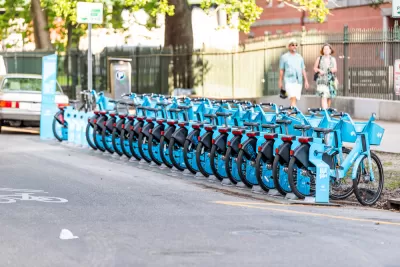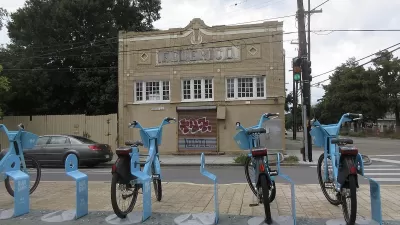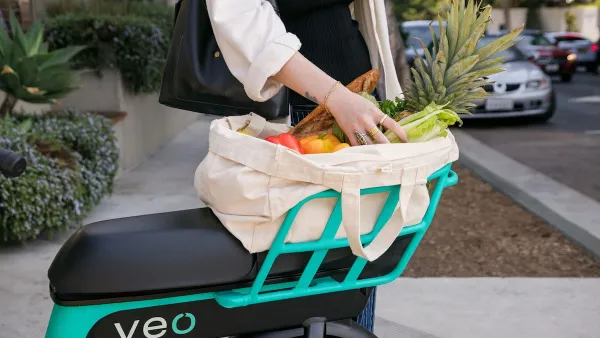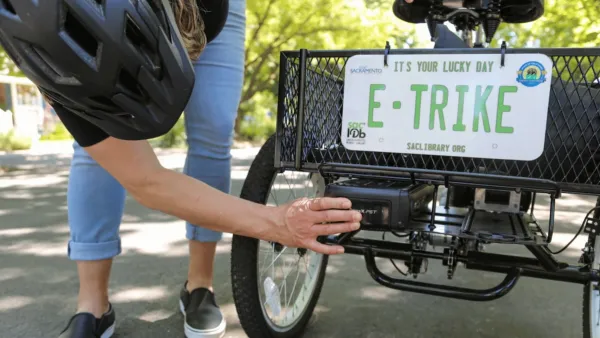After the city lost its bike share fleet, its former manager pledged to bring it back, and did so under a non-profit model that centers equity for riders and workers.

“Of the nearly 300 bike-share and scooter-share programs in North America, more than half are privately owned, a figure that is quickly growing. That leaves most micromobility programs vulnerable to market whims, a precarious position for a mode of transportation upon which many people depend,” explains Gabriela Aoun Angueira in Grist.
When the pandemic threatened to permanently end New Orleans’ bike share system—which was suspended in 2020, then passed on to Lime, whose contract was eventually canceled by the city due to disagreements over the introduction of electric scooters—Geoff Coates, former manager of Blue Bikes, decided to create a community-run model and bring bike share back to the city.
Coates reorganized under a new nonprofit called Blue Krewe, which secured funding from prior bike share sponsors Blue Cross and Blue Shield and the Greater New Orleans Foundation, and relaunched a 500-bike system in September 2021.
According to Aoun Angueira, “Blue Bikes costs less to use now — just 15 cents per minute, or $25 a month for a membership. People who use Medicaid or SNAP benefits pay only $4. The program covers roughly the same area as before, but Blue Krewe has a review process to ensure bikes are distributed equitably.” Blue Krewe also employs full-time workers rather than using the gig economy model.
The city’s newest climate action plan calls for expanding the system to 2,000 bikes as part of its effort to cut vehicle trips in half by 2030.
FULL STORY: How to build a better bike-share program

Maui's Vacation Rental Debate Turns Ugly
Verbal attacks, misinformation campaigns and fistfights plague a high-stakes debate to convert thousands of vacation rentals into long-term housing.

Planetizen Federal Action Tracker
A weekly monitor of how Trump’s orders and actions are impacting planners and planning in America.

San Francisco Suspends Traffic Calming Amidst Record Deaths
Citing “a challenging fiscal landscape,” the city will cease the program on the heels of 42 traffic deaths, including 24 pedestrians.

Defunct Pittsburgh Power Plant to Become Residential Tower
A decommissioned steam heat plant will be redeveloped into almost 100 affordable housing units.

Trump Prompts Restructuring of Transportation Research Board in “Unprecedented Overreach”
The TRB has eliminated more than half of its committees including those focused on climate, equity, and cities.

Amtrak Rolls Out New Orleans to Alabama “Mardi Gras” Train
The new service will operate morning and evening departures between Mobile and New Orleans.
Urban Design for Planners 1: Software Tools
This six-course series explores essential urban design concepts using open source software and equips planners with the tools they need to participate fully in the urban design process.
Planning for Universal Design
Learn the tools for implementing Universal Design in planning regulations.
Heyer Gruel & Associates PA
JM Goldson LLC
Custer County Colorado
City of Camden Redevelopment Agency
City of Astoria
Transportation Research & Education Center (TREC) at Portland State University
Jefferson Parish Government
Camden Redevelopment Agency
City of Claremont





























